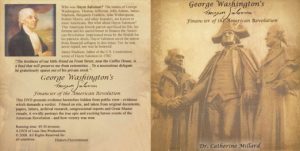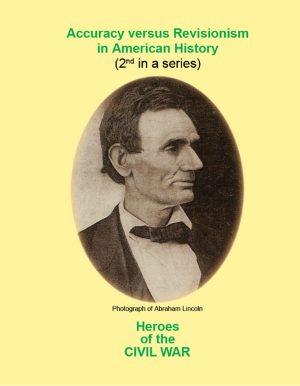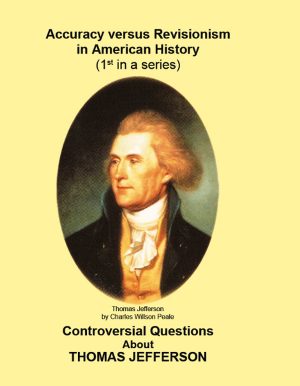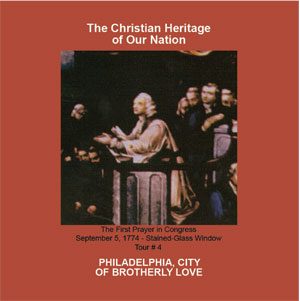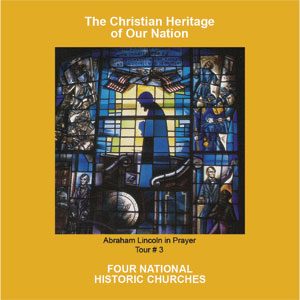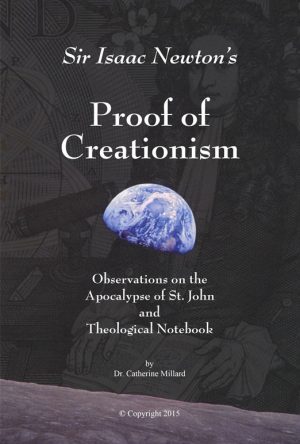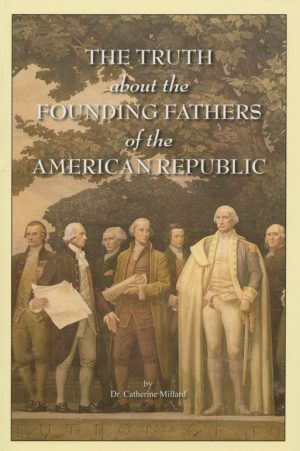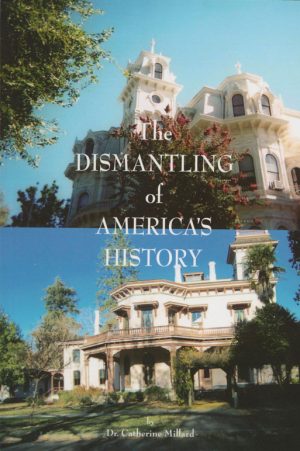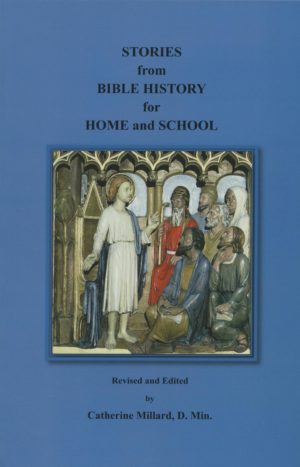From, “The Great Reformer – 400th Anniversary of Martin Luther’s
Birthday in Washington, D.C.” The Washington Evening Star,
November 10, 1883.
The Protestant Reformation dates from the 31st October, 1517, the day on which Luther nailed to the door of the Church at Wittenberg the famous ninety-five theses. According to the historians of the Reformation, Pope Leo X in 1510 resorted to the plan of selling indulgences as a means of filling the empty treasury at Rome. This traffic was entrusted to a monk named John Tetzel and others. Luther’s first knowledge of this traffic was brought to him by some of his own parishioners, who, living in Wittenberg, had gone to a neighboring town to purchase some of the new merchandise. They came to him and confessed great irregularities, and even crimes which they had committed, and on being rebuked by Luther, they replied that they did not intend to abandon their sins. Luther was shocked and would not absolve them unless they promised to change their habits. They then showed him their letters of indulgence, believing in their efficacy. The poor dupes returned to Tetzel with complaints against their confessor, and he threatened to excommunicate and bring the most dreadful maledictions to bear against Luther and any others who dared question the efficacy of his indulgences. Luther appealed to the bishops and to the Pope. They would not interfere. Then he wrote out the ninety-five theses as subjects for discussion at the coming holyday of All Saints and nailed them to the door of the Church. The principal points of the theses are as follows:
1.
Our Lord and Master Jesus Christ when He commands us to repent, intends that our whole lives shall be one of repentance.
2.
This word cannot be understood of the sacrament of penance (i.e. confession and satisfaction) as administered by the priest.
3.
Still the Lord does not mean to speak in this place solely of internal repentance, which is null if it produce not externally every kind of mortification of the flesh.
4.
Repentance and sorrow that is true penitence lasts as long as a man is displeased with himself; that is, while he passes from this to eternal life.
5.
The Pope neither intends, nor can he remit any other punishment than that which he has imposed, according to his good pleasure, or in conformity with the canons – that is, to the Papal ordinances.
6.
The Pope can forgive no debt, but can only declare and confirm the forgiveness which God Himself has given, except in cases that refer to himself. If he does otherwise, the debts remain unremoved and unforgiven.
7.
God forgives the sins of no one whom he does not at the same time humble, and who is not willing to obey his confessor.
8.
The laws of ecclesiastical penance ought to be imposed solely on the living, and have no regard to the dead.
21.
Therefore the preachers of indulgences are in error when they say that in consequence of the Pope’s indulgences, men are liberated from all sin and saved.
27.
They preach mere human folly who maintain that as soon as the money tinkles, avarice and love of gain arrive, increase and multiply. But the support and prayers of the Church depend on God’s will and good pleasure.
32.
Those who fancy themselves sure of salvation by indulgences will go to perdition along with those who teach them so.
35.
They are teachers of anti-Christian doctrines who pretend that to deliver a soul from purgatory or to buy an indulgence there is no need of either sorrow or repentance.
36.
Every Christian who truly repents of his sins enjoys an entire remission both of the penalty and of the guilt, without any need of indulgences.
37.
Every true Christian, whether dead or alive, participates in all the blessings of Christ, or of the Church, by God’s gift, and without a letter of indulgence.
40.
True repentance and sorrow seek and love the punishment; but the mildness of indulgence absolves from the punishment and begets hatred against it.
42.
We should teach Christians that the Pope has no thought or desire of compassing in any respect the act of buying indulgence with any mark of mercy.
43.
We should teach Christians that he who gives to the poor or lends to the needy does better than he who purchases an indulgence.
44.
For the work of charity increaseth charity, and renders a man more pious, whereas the indulgence does not make him better, but only renders him more self-confident and more secure from punishment.
45.
We should teach Christians that whoever sees his neighbor in want and yet buys an indulgence does not buy the Pope’s indulgence, but incurs God’s anger.
46.
We should teach Christians that if they have a superfluity they are bound to keep for their own household the means of procuring necessaries, and ought not to squander their money in indulgences.
47.
We should teach Christians that the purchase of an indulgence is a matter of free choice and not of commandment.
48.
We should teach Christians that the Pope, having more need of prayers offered up in faith than of money, desires prayer more than money when he offers indulgences.
49.
We should teach Christians that the Pope’s indulgence is good if we put no confidence in it; but nothing is more hurtful if it diminishes our piety.
50.
We should teach Christians that if the Pope knew of the extortions of the preachers of indulgences, he would rather the mother Church of St. Peter were burnt and reduced to ashes than see it built up with the skin, and flesh and bones of his flock.
51.
We should teach Christians that the Pope (as it is his duty) should distribute his own money to the poor whom the indulgence sellers are now stripping of their last farthing, even were he compelled to sell the mother Church of St. Peter.
52.
To hope to be saved by indulgence is a lying and an empty hope, although even the commissary of indulgence — nay, farther, the Pope himself — should pledge their souls to guarantee it.
53.
Those who forbid the preaching of God’s word in other churches on account of the preaching of indulgences are enemies of Christ and of the Pope.
54.
Injustice is done to the Word of God when as much or even more time is taken up in Church in preaching indulgences than the Word of God.
55.
The Pope can have no other thought than this: If the indulgence, which is a lesser matter, be celebrated with ringing of a bell, with pomp and ceremony, much more should we honor and celebrate the Gospel, which is a greater thing, with a hundred bells and a hundred pomps and ceremonies.
56.
The treasures of the Church, out of which the Pope distributes indulgences, are neither recognized, nor pronounced satisfactory by the Church of Christ.
59.
St. Laurence called the poor members of the Church, the Church’s treasures, but he used the word as it was understood in his day.
62.
The proper and true treasure of the Church is the holy Gospel of the glory and grace of God.
63.
This treasure is for the benefit of the most hostile and the most hated, for it causes the first to be last.
64.
But indulgences are for the benefit of the most worthy, for it causes the last to be the first.
65.
Therefore the treasures of the Gospel are nets in which in former times the rich and respectable were caught.
66.
But the treasures of indulgences are the nets by which in the present day the riches of the people are caught.
67.
But the indulgence which the preachers hold up to the greatest grace must, of course, be esteemed a great favor, for it produces great gain and interest.
68.
And yet this indulgence is certainly the very smallest grace when compared with the grace of God and the salvation of the cross.
69.
It is the duty of bishops and pastors to receive with all respect the commissaries of the Pope.
70.
But it is still more their duty to ascertain with their eyes and ears that the said commissaries do not preach the dreams of their own imaginations, instead of the orders of the Pope.
72.
But blessed be he who speaks against the foolish and impudent language of the preachers of indulgences.
76.
The indulgence of the Pope cannot take away the smallest daily sin, as far as regards the guilt of the offense.
77.
To say that St. Peter, if he were now Pope, could not give a more perfect indulgence, is blasphemy against St. Peter and the Pope.
79.
It is blasphemy to say that the cross adorned with the arms of the Pope is as effectual as the cross of Christ.
80.
The bishops, pastors, and theologians who permit such things to be told the people will have to render an account of them.
86.
Why, say they, does not the Pope, who is richer than the richest Croesus, build the mother church of St. Peter with his own money rather than that of poor Christians?
92.
Would that we were quit of all those preachers who say to the church, Peace! Peace! When there is no peace.
94.
We should exhort Christians to diligence in following Christ, their head, through crosses, death and hell.
95.
For it is far better to enter into the Kingdom of Heaven through much tribulation than to acquire a carnal security by the consolations of a false peace.
The Luther Statue
The unveiling ceremonies are to be held next month. The work on the pedestal of the statue of Martin Luther, to be placed in front of the Luther Memorial Church… It will be remembered that the statue represents Luther in a standing position in the clerical robes of that age. The right hand rests upon the Bible, and the facial expression is such as to impress the visitor with the Christian character of the man. The word “Martin Luther” will appear in bold relief on the pedestal. The unveiling will take place early in March, and the ceremony will be very impressive. People from all parts of the country are expected to participate and the President will be invited to officiate.
To learn more, click here.
_______________________
(The National Memorials Book)

